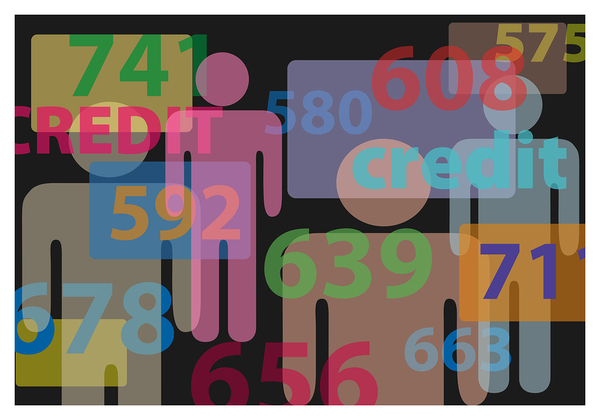Most people understand that they need a good credit score to secure a mortgage or get an auto loan with a decent interest rate. But were you aware that your credit score could affect how much you pay for auto insurance? There is good news on several fronts. Depending on where you live, credit scores may not be a car insurance rating factoring. Also, if you have good credit, your rates might be even lower in some states. Here is some information about using credit scores for auto insurance, why it could be a controversial subject, and a few simple things that you can do to boost your score.
How Does Your Credit Score Impact Your Auto Insurance Rates?
Insurers use a process called underwriting that incorporates a series of complex rating factors to determine your auto insurance rates. These rates reflect the likelihood of your getting into an accident or filing a claim for some other type of loss. Do all states use credit scores in this process? No, they don’t. If you live in California, Hawaii, or Massachusetts, your credit score can’t be used to set auto insurance rates. However, credit scores are used in varying degrees as a rating factor throughout the rest of the country.
It’s important to remember that factors other than credit scores also play a role in determining auto insurance rates. In other words, although credit scores can influence the insurance rate, the degree of the impact can vary.
Credit-based insurance rates are also influenced by such things as your driving record, where you live, the type of car you drive, and your mileage. That said, having a perfect credit score doesn’t necessarily mean your car insurance rates will be low, but the combination of a good driving record and a good credit score can certainly help you get cheaper rates.
Some Simple Things You Can Do to Improve Your Credit Score
In most states today, your credit score might impact your auto insurance rates to some degree. If you’re planning to shop for auto insurance in the near future, you can take a few simple steps to improve your credit rating and secure some lower rates. Pull your free annual credit report to make sure that everything is accurate. If there are disparities or unpaid debts, take care of them as soon as possible. Also, pay all of your bills on time and consider setting auto-debit payments for your bills. Avoid certain types of credit, such as department store cards, and applying for new credit too often.
While using credit scores as a rating factor isn’t always popular, it could help you receive lower rates. Regardless of your credit situation, your best option is to get several quotes to secure the best car insurance rates. Get started now with an auto insurance quote.
The information in this article was obtained from various sources. This content is offered for educational purposes only and does not represent contractual agreements, nor is it intended to replace manuals or instructions provided by the manufacturer or the advice of a qualified professional. The definitions, terms and coverage in a given policy may be different than those suggested here and such policy will be governed by the language contained therein. No warranty or appropriateness for a specific purpose is expressed or implied.


